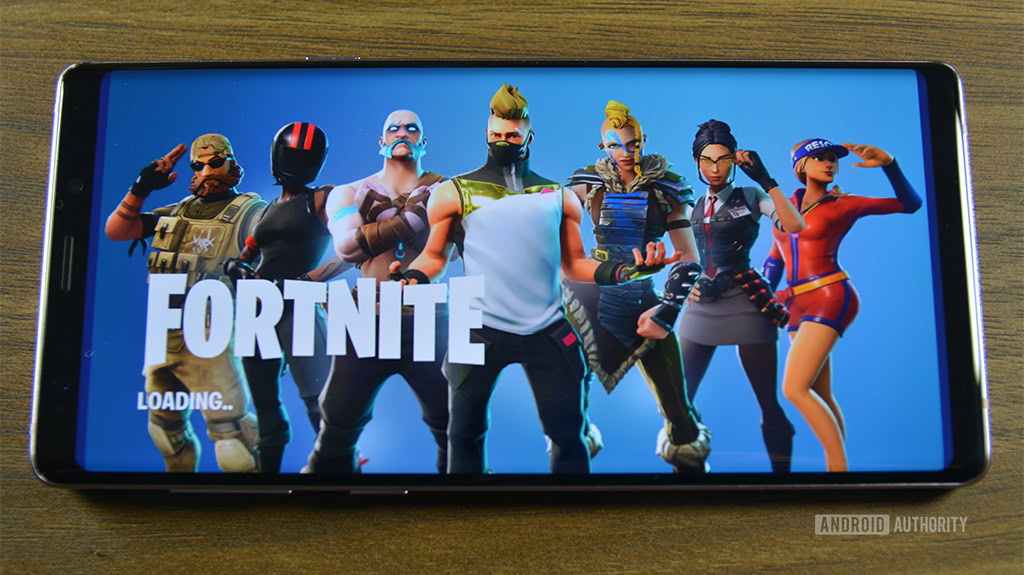Affiliate links on Android Authority may earn us a commission. Learn more.
Epic submits Fortnite to Play Store (Update: Google rejects submission)
December 9, 2019

Update, December 9, 2019 (05:29 PM ET): According to The Verge, Google has formally rejected Epic’s submission of Fortnite to the Google Play Store, as described in the original article below. Google is standing by its requirement that, in order for an app to charge for in-app purchases through the Play Store, that app must use Google’s payment infrastructure. As Epic’s Fortnite submission used its own proprietary payment platform, the app was rejected.
Google had this to say in a statement:
Android enables multiple app stores and choices for developers to distribute apps. Google Play has a business model and billing policy that allow us to invest in our platform and tools to help developers build successful businesses while keeping users safe. We welcome any developer that recognizes the value of Google Play and expect them to participate under the same terms as other developers.
Google was also quick to point out that Fortnite is available on iOS devices through Apple’s official App Store, and (presumably) needs to pay the same 30% cut to Apple like every other app. However, Apple doesn’t allow third-party app stores on iOS or iPad OS, so Epic had but two choices there: release Fortnite through the App Store or not release the game for iPhones and iPads at all.
Not one to back down, Epic actually threw a pretty significant allegation at Google’s feet in response to Fortnite’s Play Store rejection:
We have asked that Google not enforce its publicly stated expectation that products distributed through Google Play use Google’s payment service for in-app purchase. We believe this form of tying of a mandatory payment service with a 30% fee is illegal in the case of a distribution platform with over 50% market share.
It isn’t clear if Epic will now attempt to involve the courts in this dispute, as the accusation that Google is operating the Play Store illegally is pretty serious.
Regardless, if you want to play Fortnite on an Android device, you’ll need to do so the same way you’ve been doing it for a year now.
Original article, December 9, 2019 (01:50 AM ET): Mega-popular video game Fortnite came to Android last year, but it didn’t land on the Google Play Store. Instead, the multiplayer shooter had to be side-loaded from publisher and developer Epic’s website.
Things could be changing though, as 9to5Google reports that Epic is planning to submit Fortnite to the Google Play Store soon. Epic is apparently submitting the game with its own payment platform, as opposed to adopting Google’s payment infrastructure.
The Fortnite developer made the decision to skip the Play Store due to Google taking a cut of revenue, traditionally pegged at roughly 30%. Instead, Epic keeps 100% of the cash when gamers spend money on virtual items and emotes in Fortnite.
All apps submitted to the Play Store are required to use Google’s payment infrastructure if they offer in-app purchases though. So it’s clear that Epic is hoping Google will make an exception. Unfortunately for Epic, it seems like the search giant might not be willing to bend the rules for Fortnite.

“Android enables multiple app stores and choices for developers to distribute apps. Google Play has a business model and billing policy that allow us to invest in our platform and tools to help developers build successful businesses while keeping users safe,” read a statement by Google to 9to5Google. “We welcome any developer that recognizes the value of Google Play and expect them to participate under the same terms as other developers.”
It certainly sounds like Google doesn’t want to make an exception for Epic, but Fortnite coming to the Play Store would make it the more secure installation method in theory. The installer downloaded via the Fortnite website had a major security flaw upon launch, theoretically allowing hackers to remotely install malicious apps on a victim’s device. The web-based install method also opens the door for phishing attacks and other schemes, fooling users into thinking they’re on Epic’s website.
Do you think Google should make an exception for Fortnite? Let us know in the comments!